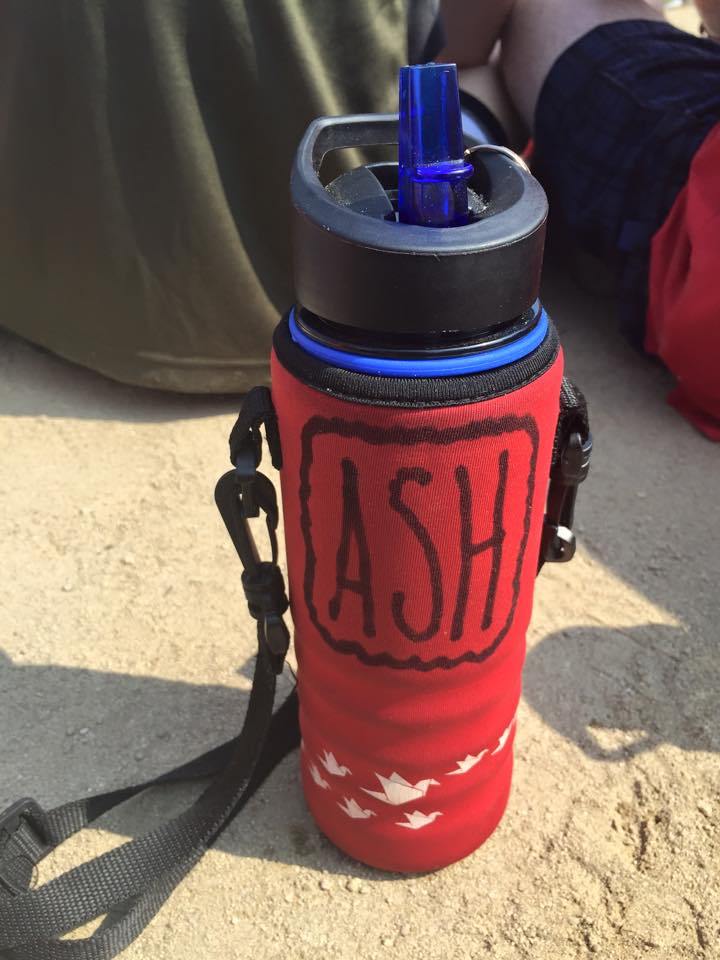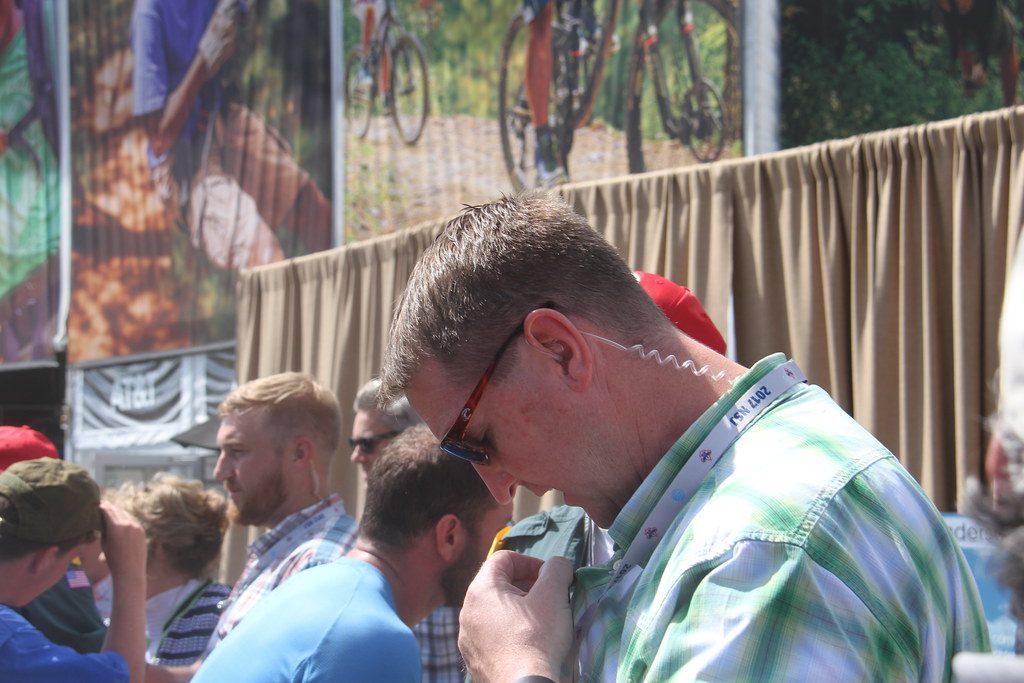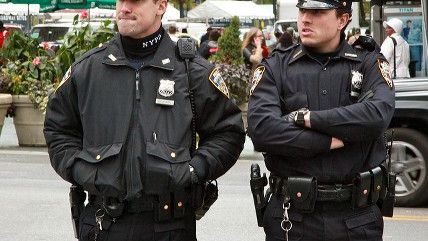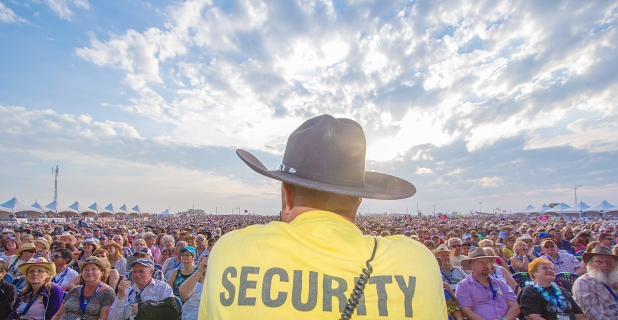Hi folks, relatively serious one this week. It’s also quite a long one, but of some importance. We’ve spoken a lot about looking after ourselves and things to look out for at the Jamboree site, and this post falls into that category but from a different angle. In an ideal world I wouldn’t have to write this one, but I’ve been to a lot of events and seen and heard a lot of stuff. I’ll try and keep it as light as possible, but there is a serious message here.
So, personal security at the Jamboree. There’s a couple of component parts to this, firstly, looking after your possessions and property, and more broadly keeping you safe and secure.
Everyone going to this event is a Scout or Guide. We have all sworn promises to uphold a set of values, one of which is:
“A Scout makes good use of time and is careful of possessions and property.”
(and the equivalent from our sister organisation). In short, this means, we don’t steal stuff, because as well as being against site rules, it’s morally wrong, and it’s illegal in most countries. The US is no exception.
In an ideal world, I wouldn’t have to make mention of this, and I’m almost certain no member of the UK Contingent will partake in such an activity. However, we do have to recognise that the UK is one of the most affluent countries attending this event. Camped next to your unit might be a unit from a country who aren’t quite as affluent as us.

I can say, based on experience, that sometimes simple human greed will trump Scout values and items will go missing. My only personal experience of this was a water bottle disapearing from the side of the road in Japan whilst I was on shift, but I was aware of food being stolen from the warehouses in Sweden and I know of stories of peoples phones/ipods etc. vanishing without a trace.
The best way of keeping your possessions safe is simply not to take them.
This Jamboree is very app-centric – there are Jamboree Apps from the food app through to the activities app. The IST and Unit Leaders also have a UK Contingent app. In the modern world of social media – as I’ve said before – it’s really easy to add friends on social media etc. so unlike my first Jamboree, getting by without a phone is likely going to be difficult.
But… do you also need a kindle or an ipad or an ipod or whatever other device you’re thinking about taking? These are high value items that are relatively easy to take, reformat and sell on with little risk of being caught. Personally, I took my kindle to Iceland and Japan because at the rate I read books, even if only for while I’m travelling, I’ll go through about 5Kg worth of paperbacks in the month I’m out there!
These are things to consider when packing. Are there any high value items that can be left behind? I took a digital camera to Sweden, Canada and Japan, but in Japan I took more photos on my phone than my camera, so when Iceland came around I just took my phone. It had a better camera in it than the actual digital camera. it saved me weight in my luggage and it was one less thing to loose!
Similarly, when my sister goes “travelling” she always takes her iPhone, iPad and Mac-book. I’m not sure what she does with all of those, but apparently they’re needed. I’ve never taken my laptop to an international event – there’s never been much of a need for me, but this time, with being away for a month, spending an evening clearing work emails might be useful…

Some folk are very into their photography and like to take high-end cameras with them to these events, with all the lenses, flashes and other associated bits. If this is you, that’s great, it’s amazing to see hobbies combine like that, but your gear is probably quite expensive and easy to sell on. Just be careful and make sure you take steps to look after it.
If anything gets stolen, the insurance will probably cover a it (less the excess) but sometimes you loose stuff that’s on them – photos and the associated memories.
The other thing to bear in mind is that the charging stations are not secure. From the photos I’ve seen (which I now can’t find) it appears to be a set of wooden “pigeon holes” with a charger in the back and no doors. Personally, I won’t be putting my phone on to charge here, rather putting my battery packs on and charging my phone from those
Similarly, any personal possessions with a high sentimental value, do you really need to take them? If you have parents or grandparents wedding/engagement rings, even teddy bears that have travelled everywhere with you since birth (don’t laugh, I’ve got me one of those), then seriously consider whether or not they’re needed. If these go missing, whether they fall out of a bag or they are stolen, you will never be able to replace them.
I know I’m probably painting a pretty negative picture of the Jamboree, so I want to reiterate, whilst these things happen, it is rare. The worst that I’ve encountered between fourteen years of doing Scout Internationals was my contingent branded water bottle going walkies, and there may be an innocent explanation behind this – perhaps one of my team picked it up to refill it and set it down somewhere else and forgot to tell me?
Finally, passports. These are probably the singular most important document you will have out with you. This is how you clear borders and get home. It’s how you prove who you are, your identity and nationality. Keep this safe. On these events, my passport is on my person at all times. I’ll talk a little more about documents closer to the Jamboree, but please make plans to stop you loosing your passport!
Some units are taking a lock-box that will live in a leaders tent where all the passports will be stored. One unit in Japan put theirs in a sealed box and buried it under a tent to keep all the passports secure. As IST, I carried mine on my person. I’m aware that some jobs will prevent you doing this, but it’s worthwhile thinking what to do!
I know some folk will padlock their inner-tent to stop the casual chancer – obviously this won’t stop someone with a knife or scissors etc. But someone may see this measure and decide it’s not worth the increased time it will take to break into your tent.
I’m not saying be paranoid of people, just be aware that things do go “missing” occasionally and you should take relevant steps to protect your own properties and possessions, even from accidental loss rather than some form of theft.
I had a mild panic attack in Japan when my daysack went missing from behind the stage. I’d been tasked to support one of the ceremonies and ended up on a team making sure people got out of the gates without being crushed. We’d been told to dump our bags and personal stuff behind the stage with the ceremonies team whilst we were out and about.
The problem was, the ceremonies team clocked off whilst we were still working. After getting folk out of the gate it had turned out that there was no-one out on the various roads to keep people away from the traffic so we got sent to assist. By the time we’d got everyone back to their sub camps there was no-one left at the arena and my rusksack, with my passport and arguably more importantly, my insulin, had vanished.
Panic ensued.
After we found the last remaining ceremonies team member left in the arena, it turned out that someone had decided all these bags left there were in fact lost property and needed taken to the central lost property store. Cue a good number of now tired, and irate security stewards traipsing halfway accross the site to recover our bags.
Accidents do happen, and sometimes you just need to take a deep breath and step back from the situation to calm yourself down. As I’ve said elsewhere, I’ve been doing these sorts of events for 12 years and I’ve only ever had a water bottle go missing!

Moving on, the next part of this is about your personal security, and safety.
I probably know about as much about Security on this Jamboree as any other member of the IST, less than a lot in fact. But it’s worth touching on, especially with some of the news that is passing out of the USA.
I am led to believe that the site is being Federalised for the duration of the Jamboree. This means that Security and Law Enforcement is no longer under the jurisdiction of the local County Sheriff’s Departments or even the West Virginia State Police. Rather, it is being administered and supervised by a series of organisations with three and four letter acronyms and whose employees are addressed as “Agent”.

I think this shows how seriously the organisers, and the US Government, are taking security. As I understand, security is going to be layered, with the local Law Enforcement (and the Feds) taking the outer perimeter, with our own Security Stewards (IST like me and some of you) handling on-site. You’ll probably see some of the local cops wandering around the site, and there is likely to be a small police station set up – we are the second biggest city in West Virginia for a while after all!

The media outlets are quite big on reporting events in the USA with shock and awe type reporting. What’s important to say here is that these events are relatively infrequent (when you normalise them against the population). All my travel guides, and the Security Manager at work, have said that the USA is about as safe as the UK in terms of personal safety.
I keep a weather eye on the Foreign and Commonwealth Office travel advice website, the link to the USA is here, and Canada is here. To briefly summarise, the FCO have advised that the UK Government is not setting any travel restrictions. They state that you should have comprehensive travel insurance (which most, if not all, of us do through Unity).
My Lonely Planets guide for New York, New York (so good they named it twice) suggests that most crime is “petty” in nature. This is likely the case across the broader USA. There are simple steps to be taken to keep yourself safe, most of which we probably practise in the UK.
Don’t flash large wads of cash about. As stated above, most crime is considered “petty theft”. My Lonely Planet’s guide(s) suggest that most of this crime is related to drugs/alcohol, which large wads of cash are fairly useful to pay for – not from personal experience, though I still don’t really remember all of *that* night in Ottawa… Keep an eye on your surroundings and travel in groups.
My advice if you get into a situation where you’re threatened is to comply as far as possible. Possessions or money or whatever can be replaced, you cannot.
The other thing to comment on, and I am aware this may be a crassly unfair generalisation, but the Police in the USA don’t operate on the same basis in the UK. This often comes across as them being considerably less patient and more prone to use physical force to ensure compliance. If you’re told to do something, do it. Don’t argue, don’t be belligerent, just do it. It can be sorted out later.
It can also be a bit of a culture shock to see the police openly carrying firearms. Unlike the UK, the police in both Canada and the USA routinely carry sidearms, and in high-risk areas might even carry long-arms. Unless you live in inner-city London, or work on a secure site like a nuclear power station or somewhere like Porton Down, it’s unlikely you see the police routinely carrying firearms. I know when I went to Sweden way back in 2011, I found it very strange sitting at the table next to a Swedish cop with a pistol on his belt, whereas my European patrol-mates didn’t bat an eyelid.

In the event that any brown sticky stuff hits any big spinney thing, the emergency number in the US (and Canada) is 911. The operators will speak English, or at least American, and will be able to assist. The contingent will also have an emergency number and it would be worth keeping them in the loop (once the initial emergency is over). If you need support from the embassy or consulates etc. I’m sure the UK Contingent has got a procedure in place to provide this.
So, I hope you’ve made it to the end. I apologise again for the heavy subject matter and the length of the post, but I think it’s important to say what I’ve said. Others might disagree, but, as with all the posts on here, they are entirely the authors own opinion and do not neccessarily represent the opinion or policy of The Scouts, the UK Contingent or its Contingent Management and Support Team(s).
Next week’s planned posts are hopefully a wee bit lighter!

